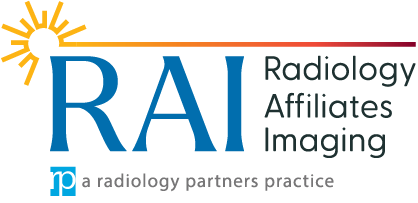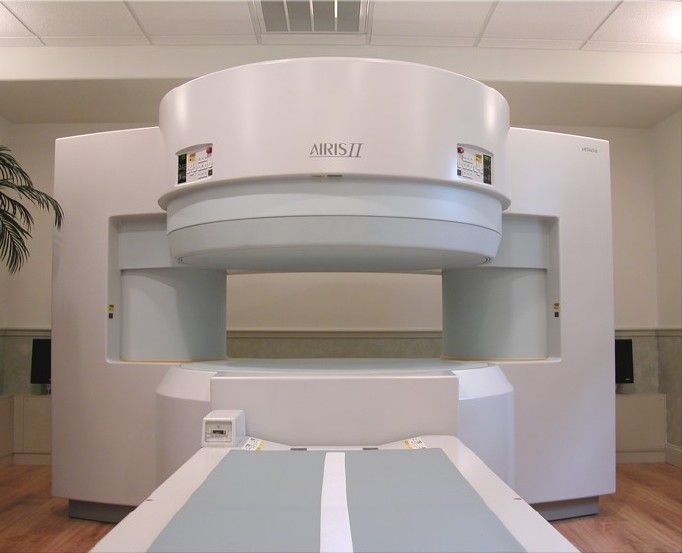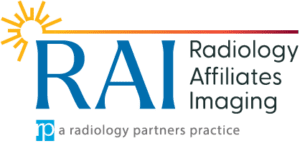
Worried About Osteoporosis? Here’s Why You Need DEXA

About 54 million adults in the U.S. are affected by osteoporosis and osteopenia (low bone mass), conditions that significantly increase your risk for serious fractures, including spine, hip and thigh fractures that can wind up causing long-term disability, not to mention considerable pain. Although osteoporosis occurs most commonly in menopausal women, anyone can develop the disease. Understanding your risks for osteoporosis can play a very important role in learning how to manage the disease so serious fractures can hopefully be prevented. Here’s what you should know about osteoporosis and how the radiologists at Radiology Affiliates Imaging can help you stay healthy.
What causes osteoporosis?
Osteoporosis literally means “porous bones,” and it occurs when the body loses bone faster than it can replace it. Normally, old bone tissue is replaced by new tissue on a regular basis. But as we age, that replacement cycle can be disrupted or altered, and the amount of old bone that’s being lost outpaces the amount or new bone that’s being generated. As a result, we lose bone mass – bones become more porous and weaker, which makes them more likely to break.
People who have osteoporosis are more likely to have traumatic fractures from falls and other accidents, and they can also break one or more bones with simple activities, like coughing, bending and lifting – even something as simple as changing your position or bumping against an object can cause a fracture in more advanced stages of the disease. When osteoporosis attacks the bones of the spine, it can cause ongoing pain and a substantial decrease in your overall quality of life.
Osteoporosis Risk Factors
Osteoporosis becomes far more common with age, and most people who have osteoporosis – especially severe forms of the disease – are women. In fact, according to the CDC, women are about five times as likely as men to have osteoporosis. That’s because the loss of bone mass tends to “speed up” once a woman’s production of estrogen and progesterone declines during menopause. Other risk factors for osteoporosis include:
- smoking
- excess alcohol consumption
- leading a sedentary lifestyle
- eating a diet low in calcium, vitamin D and other nutrients important for bone growth
- family history of osteoporosis or osteopenia
- long-term use of certain medications, including corticosteroids
- certain autoimmune or hormonal diseases and disorders
DEXA: Know Your Risks for Osteoporosis
As with most other diseases, one of the best ways to fight the disease and the effects it can cause is to have it diagnosed early – ideally even before significant bone loss has occurred. The good news: Diagnosis can be accomplished with a simple, noninvasive, completely painless evaluation called bone densitometry or DEXA (dual-energy X-ray absorptiometry).
DEXA uses low-energy X-rays to assess the mass of a specific area of bone. During the test, two low-energy X-rays are sent through the area of bone being evaluated. The use of two X-ray waves significantly improves the accuracy of the test results. After passing through your bone, these rays are “captured” by a special detector, which measures how much of the X-ray energy passes through the bone. This measurement is called your T score. Bones that have less mass allow more X-ray energy to pass through compared to those that have normal thickness. Once your T score is obtained, it’s compared to large databases to determine your personal risk for osteoporosis as well as your risk for fractures. By knowing your T score, you and your doctor can work toward reducing those risks.
Like other X-rays, DEXA takes just a few minutes, and it can provide you with vitally important information that can help you get the care you need to reduce your risks of life-altering fractures.
Should I have a bone scan?
Because the risk of developing osteoporosis is so much greater for women, the U.S. Preventive Services Task Force recommends all women have a DEXA bone scan at age 65 to assess their risks, with at-risk women having scans performed earlier. Men should have scans based on their physicians’ advice.
Radiology Affiliates Imaging is committed to helping each patient get the information they need to play a proactive role in their health and their life, offering DEXA and other diagnostic imaging services aimed at diagnosing diseases in their earliest stages, even before symptoms occur. As a leading imaging center in Central NJ, we offer three convenient locations to make it easy to take control of your healthy future. To find out more about DEXA or any of the other imaging services we offer, call RAI at 609-585-8800 today.





